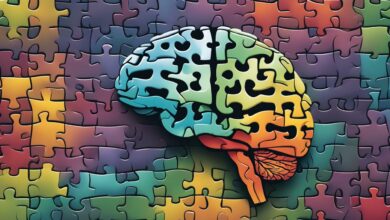Exploring Holistic Health: Mind, Body, and Soul

Welcome to our comprehensive guide on Holistic Health, where we will explore the interconnectedness of the mind, body, and soul in achieving optimal well-being. Holistic Health is a multi-dimensional approach to healthcare that considers the whole person – physical, mental, emotional, and spiritual – to achieve overall wellness.
In today’s fast-paced world, many individuals seek alternatives to traditional healthcare models that focus solely on treating symptoms or specific health conditions. They look for ways to achieve optimal health and well-being that addresses all aspects of their lives – this is where Holistic Health comes in.
Key Takeaways
- Holistic Health is a multi-dimensional approach to healthcare that considers the whole person – physical, mental, emotional, and spiritual – to achieve overall wellness.
- Holistic Health focuses on balancing the mind, body, and soul for optimal health.
- Many individuals seek holistic approaches to healthcare as an alternative to traditional healthcare models.
- Holistic Health promotes well-being through various practices, including self-care, mindfulness, nutrition, exercise, and holistic therapies.
- By embracing a holistic approach to health and wellness, individuals can achieve optimal health, happiness, and fulfillment.
Understanding Holistic Health: A Comprehensive Approach to Healthcare
At its core, holistic health is about treating the whole person – mind, body, and soul – rather than simply addressing specific symptoms or health conditions. This means taking a comprehensive approach to healthcare that considers all aspects of a person’s life and well-being.
When we speak of “holistic health,” we are referring to a mindset and approach that incorporates both traditional and alternative medicine practices to achieve optimal health. It emphasizes the interconnectedness of the mind, body, and spirit, and recognizes that each of these elements must be in balance for us to achieve overall wellness.
At its heart, holistic health is about empowering individuals to take charge of their own health and well-being. By adopting a holistic approach to healthcare, people can learn to listen to their bodies, identify potential health issues before they become major problems, and take proactive steps to prevent illness and disease.
Defining Holistic Health and Its Approach to Healthcare
So, what exactly do we mean when we talk about holistic health? At its most basic level, holistic health is an approach to healthcare that takes into account the whole person – body, mind, and spirit – rather than just focusing on individual symptoms or health issues.
While traditional medicine tends to focus on treating specific ailments or conditions with medication or surgery, holistic health seeks to address not just the symptoms, but the underlying causes of these issues. One key aspect of holistic health is the belief that the body has an innate ability to heal itself, and that by providing it with the right tools and support, we can help it do just that.
From a holistic perspective, health is not simply the absence of disease or illness. Rather, it is a state of optimal well-being that encompasses physical, emotional, and spiritual health. This means that in order to achieve true health, we must strive to find balance and harmony in all aspects of our lives.
Some of the key principles of holistic health include:
- Prevention: Rather than waiting until a health issue arises, holistic health emphasizes the importance of taking preventive measures to maintain optimal health and prevent illness
- Individuality: Because each person is unique, a holistic approach to healthcare takes into account each individual’s unique needs, circumstances, and preferences
- Integration: Holistic health seeks to integrate both traditional and alternative medicine practices in order to provide the best possible care for each person
- Empowerment: By emphasizing the importance of self-care and self-awareness, holistic health empowers individuals to take an active role in their own healthcare
The Mind-Body Connection: Unveiling the Power of Mental Health in Holistic Healing
At the core of Holistic Health is the recognition of the powerful connection between the mind and body. This mind-body connection is fundamental to our overall well-being and plays a crucial role in Holistic Healing.
The mind has a great influence on the body, and vice versa. Our thoughts, emotions, and mental states can impact our physical health, just as our physical health can affect our mental state. Research has shown that stress, anxiety, and negative emotions can have detrimental effects on our physical health, leading to a range of illnesses and diseases.
On the other hand, positive emotions and a clear, calm mind can promote physical healing and overall well-being. Holistic Health practices such as meditation, mindfulness, and breathing exercises can help harness the power of the mind for healing purposes.
When we cultivate a positive mental state, we create a favorable environment for healing and recovery. Holistic Health practices can also help us break free from negative thought patterns, reduce stress and anxiety, and improve our overall mental health.
The mind-body connection also emphasizes the importance of addressing the underlying causes of physical symptoms or illnesses, rather than just treating the symptoms themselves. By considering the whole person – physical, mental, emotional, and spiritual – we can identify and address the root causes of health issues and promote lasting healing.
Through Holistic Health practices, we can tap into the power of the mind-body connection to achieve optimal health and well-being.
Nurturing the Soul: Spiritual Wellness and Holistic Health
When it comes to achieving optimal wellness, Holistic Health emphasizes the importance of nurturing the soul in addition to the body and mind. Spiritual wellness, an essential component of Holistic Health, refers to understanding the deeper meaning and purpose of life, developing a sense of belonging, and fostering a connection to something greater than oneself.
Incorporating spiritual practices into your daily routine can help create a sense of inner calm and peace, increase mental clarity, and enhance overall well-being. Practices such as meditation, prayer, journaling, or spending time in nature can all promote spiritual growth and development.
At the core of spiritual wellness lies the belief in a higher power or divine force. This belief can provide comfort during challenging times, offer hope and inspiration, and foster a sense of community and belonging.
When we neglect our spiritual well-being, we may experience a sense of emptiness or lack of purpose. By engaging in spiritual practices and seeking spiritual wellness, we can find meaning and fulfillment in our lives and enhance our Holistic Health.
Whether it’s through meditation, yoga, or connecting with nature, there are many ways to nurture the soul and strengthen our connection to the divine. By prioritizing spiritual wellness, we can achieve a more balanced and fulfilling life.
Integrating Holistic Practices: Incorporating Holistic Health Into Your Daily Life
At this point, we understand the importance of Holistic Health in achieving overall wellness. But how can we make it a part of our daily lives? One key is to integrate holistic practices into our routine. This involves nurturing all aspects of our being – physical, mental, emotional, and spiritual. Here are some practical tips on how to do this:
Self-Care
Self-care is essential in Holistic Health. It involves taking care of yourself physically, emotionally, and mentally. Some ideas for self-care include:
- Getting enough sleep
- Taking breaks when needed
- Practicing positive self-talk
- Engaging in activities that bring joy and relaxation
Mindfulness
Mindfulness is the practice of being present in the moment and aware of your thoughts and feelings without judgment. It can help reduce stress, increase focus, and promote overall well-being. Some ways to incorporate mindfulness into your daily life include:
- Meditating for a few minutes each day
- Practicing breathing exercises
- Being present while doing daily activities, such as eating or walking
Nutrition
What we eat has a significant impact on our overall health and well-being. In Holistic Health, it’s important to focus on whole, nutrient-dense foods and practice mindful eating. Some ideas for holistic nutrition include:
- Eating a variety of fruits, vegetables, and whole grains
- Choosing organic and non-GMO foods when possible
- Limiting processed and sugary foods
Exercise
Physical activity is vital for achieving overall wellness. In Holistic Health, it’s important to focus on exercises that balance the mind and body. Some ideas for holistic fitness include:
- Practicing yoga, tai chi, or qigong
- Engaging in outdoor activities, such as hiking or gardening
- Incorporating strength training and flexibility exercises
Incorporating these holistic practices into your daily life can help you achieve balance and overall well-being. Remember, Holistic Health is about nurturing all aspects of your being – physical, mental, emotional, and spiritual.
Holistic Nutrition: Fueling Your Body for Optimal Health
In Holistic Health, nutrition plays a vital role in achieving optimal health. Our bodies require a balance of nutrients to function properly, and the food we consume has a direct impact on our physical, mental, and emotional well-being. Holistic Nutrition takes a whole foods approach, emphasizing eating fresh, nutrient-dense, and minimally processed foods to fuel the body.
Whole, nutrient-dense foods: The foundation of Holistic Nutrition is whole, nutrient-dense foods such as fruits, vegetables, whole grains, lean proteins, and healthy fats. These foods are rich in essential vitamins, minerals, fiber, and antioxidants that support the immune system, reduce inflammation, and promote healthy digestion.
Mindful eating: In addition to what we eat, how we eat is also essential in Holistic Nutrition. Mindful eating means being present and fully engaged in the eating experience, paying attention to hunger and satiety cues, and savoring the taste and texture of food. By practicing mindful eating, we can develop a healthier relationship with food and make better food choices.
| Holistic Food Choices | Limit or Avoid |
|---|---|
| Whole grains (brown rice, quinoa, oats) | Processed foods (chips, cookies, candy) |
| Fruits and vegetables | Sugary drinks (soda, juice) |
| Lean proteins (chicken, fish, beans) | Fried foods |
| Healthy fats (avocado, nuts, olive oil) | Trans fats (margarine, processed snacks) |
Food as medicine: Holistic Nutrition also recognizes the power of food as medicine. Certain foods have specific healing properties and can be used to prevent or manage health conditions. For example, turmeric can reduce inflammation, ginger can aid in digestion, and blueberries are rich in antioxidants.
Incorporating Holistic Nutrition Into Your Life
Integrating Holistic Nutrition into your daily life doesn’t have to be complicated or restrictive. Here are some practical tips to get started:
- Eat a variety of fruits and vegetables to ensure a range of nutrients
- Choose whole grains instead of refined grains for more fiber and nutrients
- Include lean proteins such as chicken, fish, or beans in your meals
- Incorporate healthy fats such as avocado, nuts, or olive oil
- Drink plenty of water to stay hydrated
- Limit processed foods, sugary drinks, and trans fats
- Practice mindful eating by paying attention to hunger and fullness cues
- Experiment with new recipes and try new foods
By making holistic nutrition a part of your lifestyle, you can support your body’s natural ability to heal and thrive.
Holistic Therapies: Ancient Practices for Modern Healing
While modern medicine has made significant strides in improving healthcare, many people are turning to centuries-old holistic therapies to complement traditional approaches. Holistic therapies treat the whole person, rather than just the symptoms of a particular condition. They aim to harmonize the mind, body, and soul for optimal health and wellness. In this section, we will explore some of the most popular and effective holistic therapies that can help you achieve your wellness goals.
Acupuncture
Acupuncture is a traditional Chinese medicine practice that involves inserting thin needles into specific points on the body. It is believed to restore the flow of energy, or qi, throughout the body. Acupuncture has been used for centuries to alleviate pain, reduce stress and anxiety, and promote overall well-being. Modern research has shown that acupuncture can be effective in treating chronic pain, nausea and vomiting after surgery or chemotherapy, and many other conditions.
Massage Therapy
Massage therapy is another ancient practice that is still widely used today. It involves the manipulation of soft tissues to relieve muscle tension, improve circulation, and promote relaxation. There are many different types of massage, each with its own unique benefits. Some of the most popular include Swedish, deep tissue, and hot stone massage. Massage therapy has been shown to reduce anxiety and depression, improve sleep quality, and even boost the immune system.
Herbal Medicine
Herbal medicine is the use of plant extracts for medicinal purposes. Many of the medicines we use today were originally derived from plants. In fact, up to 80% of the world’s population still relies on herbal medicine for their healthcare needs. Herbal remedies can be used to treat a wide range of conditions, from colds and flu to digestive problems and skin conditions. While some herbal remedies can interact with prescription medications, many are safe and effective when used as directed.
Energy Healing
Energy healing is a holistic therapy that aims to balance and restore the body’s energy system. There are many different types of energy healing, including Reiki, qigong, and chakra healing. These practices use different techniques to channel and manipulate energy, with the goal of promoting physical and emotional healing. Energy healing has been shown to reduce stress and anxiety, improve sleep quality, and enhance overall well-being.
| Therapy | Benefits |
|---|---|
| Acupuncture | Reduces pain, stress, and anxiety; improves overall well-being |
| Massage Therapy | Relieves muscle tension, improves circulation, and promotes relaxation |
| Herbal Medicine | Treats a wide range of conditions; can be safe and effective when used as directed |
| Energy Healing | Restores balance to the body’s energy system; promotes physical and emotional healing |
Overall, holistic therapies can be a valuable addition to your healthcare routine. Whether you’re dealing with chronic pain, stress, or a specific health condition, there is likely a holistic therapy that can help. However, it’s important to work with a qualified practitioner and to inform your healthcare provider if you are using any complementary therapies. By taking a whole-person approach to your health, you can achieve optimal wellness and live your best life.
Holistic Fitness: Balancing Body and Mind Through Exercise
In Holistic Health, fitness is not just about physical exercise. It is also about cultivating mental and emotional strength through movement. Holistic fitness emphasizes the mind-body connection, recognizing that physical health and mental well-being are interconnected. By incorporating holistic fitness practices into your routine, you can promote balance, flexibility, strength and a deeper sense of well-being.
Yoga, tai chi, and qigong are examples of holistic fitness practices that promote physical strength, flexibility, and mental well-being. These practices integrate movement, breath, and meditation to cultivate a heightened state of awareness, reduce stress and improve overall health. In addition, these practices can improve balance, coordination, and flexibility, while also supporting emotional stability and mental clarity.
Throughout the exercise routine, focus on your breath to deepen your mind-body connection. Take deep, slow breaths, inhaling through the nose and exhaling through the mouth. With every inhale, visualize energy and vitality entering your body, and with every exhale, release any tension or stress.
By making holistic fitness a part of your daily routine, you can boost your physical and mental health, increase your energy levels, and find inner peace and clarity. We encourage you to give it a try and discover the transformative power of holistic fitness.
Holistic Mindfulness: Cultivating Present Moment Awareness for Well-Being
In Holistic Health, mindfulness is a key practice for fostering well-being. Mindfulness refers to the practice of being fully present in the moment, both in body and mind. By cultivating mindfulness, we can reduce stress and anxiety, improve mental clarity, and enhance our overall well-being.
Mindfulness can be practiced in many ways, including meditation, breathing exercises, and mindful movement such as yoga or tai chi. These practices encourage us to slow down, pay attention to our thoughts and sensations, and become more aware of our surroundings.
One of the benefits of mindfulness is its ability to reduce stress. When we are mindful, we are better able to recognize stressors and respond to them in a calm and centered way. Mindfulness meditation, for example, has been shown to reduce symptoms of anxiety and depression, and even improve the immune system.
Another benefit of mindfulness is its ability to improve mental clarity and focus. When we are mindful, we are more able to concentrate on the task at hand and less likely to be distracted by our thoughts or external stimuli. Mindfulness has been shown to improve cognitive function and memory in both children and adults.
Finally, mindfulness can help us cultivate a sense of inner peace and well-being. When we are mindful, we are more able to connect with our inner selves and find a sense of purpose and meaning in our lives. By cultivating mindfulness, we can enhance our overall sense of happiness and fulfillment.
To incorporate mindfulness into your daily life, try setting aside a few minutes each day for meditation or breathing exercises. You can also practice mindfulness in everyday activities, such as eating or walking, by paying attention to your senses and being fully present in the moment.
Overall, mindfulness is an important practice for achieving holistic health and well-being. By cultivating present moment awareness, we can reduce stress, improve mental clarity, and enhance our overall sense of happiness and fulfillment.
Holistic Lifestyle: Creating a Wellness-Oriented Environment
As we have explored throughout this article, Holistic Health aims to promote overall well-being by balancing the mind, body, and soul. To truly embrace this approach, it is essential to create a holistic lifestyle that supports your wellness goals.
One key aspect of a holistic lifestyle is creating a wellness-oriented environment. This means surrounding yourself with people, places, and things that uplift and inspire you. It also means decluttering your physical and mental space to create a sense of calm and clarity.
Another important aspect of a holistic lifestyle is fostering positive relationships. This includes nurturing healthy relationships with family and friends, as well as seeking out supportive communities that align with your values and goals.
Finally, finding balance in all aspects of life is crucial for a holistic lifestyle. This means prioritizing self-care, setting boundaries, and making time for activities that bring you joy and fulfillment.
By creating a holistic lifestyle that supports your well-being, you can cultivate a sense of purpose, meaning, and vitality in all areas of your life.
Conclusion
In conclusion, we have explored the concept of Holistic Health and its approach to healthcare. We have shown how Holistic Health considers the whole person – physical, mental, emotional, and spiritual – rather than just focusing on symptoms or specific health conditions. By balancing the mind, body, and soul, Holistic Health can play a significant role in achieving optimal wellness.
We have discussed the importance of integrating Holistic Health practices into your daily routine, such as self-care, mindfulness, nutrition, exercise, and various holistic therapies. By adopting a holistic lifestyle, you can create a wellness-oriented environment that supports your overall well-being.
We have also highlighted the significance of the mind-body connection in Holistic Health, exploring the power of mental health in healing and promoting overall wellness. We have delved into the role of spirituality in Holistic Health and how nurturing the soul can enhance overall well-being.
Furthermore, we have explored various Holistic Health practices, including holistic nutrition, fitness, mindfulness, and lifestyle choices. These practices can help you achieve optimal health and wellness by creating balance and harmony in all aspects of your being.
Embrace the holistic approach and discover the transformative power of Holistic Health. By nurturing all aspects of your being and integrating Holistic Health practices into your life, you can embark on a journey towards a healthier, more fulfilled life.
FAQ
Q: What is Holistic Health?
A: Holistic Health is an approach to healthcare that considers the whole person – physical, mental, emotional, and spiritual – rather than just focusing on symptoms or specific health conditions.
Q: How does Holistic Health promote overall wellness?
A: Holistic Health promotes overall wellness by balancing the mind, body, and soul. It takes into account various factors such as nutrition, exercise, mindfulness, and spirituality to achieve optimal health.
Q: What is the mind-body connection in Holistic Health?
A: The mind-body connection in Holistic Health recognizes the intricate relationship between mental and physical health. It emphasizes the impact of mental well-being on physical well-being and explores practices that harness the power of the mind for healing.
Q: How does spirituality play a role in Holistic Health?
A: Spirituality plays a significant role in Holistic Health as it nurtures the soul and promotes spiritual wellness. It encourages individuals to seek inner peace, connect with their deeper selves, and explore practices that enhance their spiritual growth.
Q: How can I integrate Holistic Health practices into my daily life?
A: Integrating Holistic Health practices into your daily life can be achieved by prioritizing self-care, practicing mindfulness, making conscious nutrition choices, engaging in holistic therapies, and adopting a holistic fitness routine.
Q: What is the role of nutrition in Holistic Health?
A: Nutrition plays a vital role in Holistic Health as it fuels the body for optimal health. Emphasizing whole, nutrient-dense foods and mindful eating practices, holistic nutrition considers the impact of diet on overall well-being.
Q: What are some holistic therapies that complement traditional healthcare approaches?
A: Holistic therapies that complement traditional healthcare approaches include acupuncture, massage therapy, herbal medicine, and energy healing. These therapies focus on treating the whole person and promoting balance and well-being.
Q: How does holistic fitness contribute to overall wellness?
A: Holistic fitness contributes to overall wellness by balancing the body and mind through exercise. Practices such as yoga, tai chi, and qigong promote physical strength, flexibility, and mental well-being.
Q: What is the significance of mindfulness in Holistic Health?
A: Mindfulness is highly significant in Holistic Health as it cultivates present moment awareness for well-being. Practicing mindfulness techniques, such as meditation and breathing exercises, reduces stress, improves mental clarity, and promotes overall wellness.
Q: How can I create a holistic lifestyle?
A: Creating a holistic lifestyle involves fostering a wellness-oriented environment, cultivating positive relationships, and finding balance in all aspects of life. It is about embracing a holistic approach to health and making conscious choices that support overall well-being.




